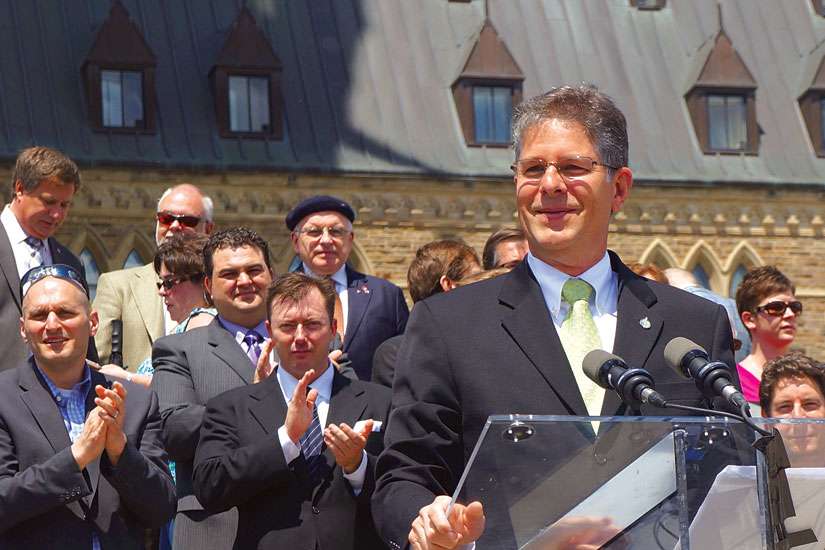The panel found that Canadians strongly support the creation of national programs for palliative care, home care and services for people with disabilities.
The panel, created by the former Conservative government, acknowledged there are divergent views on many aspects of physician-assisted dying, but found a growing consensus on some key points. In particular, it cited a need for safeguards, oversight and a “strengthened palliative care framework to be developed in parallel” with access to physician-assisted dying.
Chaired by palliative care expert Dr. Harvey Chochinov, the panel included disability studies expert Catherine Frazee and legal expert Professor Benoit Pelletier. The members were originally asked to provide legislative advice, but the new Liberal government softened the mandate and restricted the panel to just providing a summary of its consultations.
Among its most striking conclusions, the panel found 70-per-cent support for the creation of a national oversight body to track physician-assisted death; 76-per-cent support for a national palliative care and end-of-life strategy; 78-per-cent support for a “comprehensive national home-care strategy”; and 80-per-cent support for a national strategy on support for those with disabilities.
The panel reported that people “were more likely to agree that physician-assisted death should be allowed when a person faces significant, life-threatening and/or progressive conditions” but they were concerned about the impact on the mentally ill, “especially those with episodic conditions” and for those “who are isolated and lonely.”
Release of the report coincided with the launch of a Parliamentary committee that will recommend how the government should implement assisted suicide. Parliament has until June 6 to pass legislation before a Supreme Court decision that legalizes assisted suicide comes into effect. The Court originally set Feb. 6 as the deadline but on Jan. 22 it acquiesced to a government request for more time.
In an interview, MP Mark Warawa said opinions on the committee are as diverse as those of Canadians at large.
“I am sensing the vast majority of people realize how serious this issue is” and how important it is to have adequate safeguards, he said.
“The purpose of the Criminal Code, which applies equally across Canada, is to protect the vulnerable.”
Warawa said palliative care is one of his priorities. He intends to remind the government of NDP MP Charlie Angus’ motion to create a national palliative care strategy, which was passed by the previous Parliament.
Lawyers from the justice department said the committee will need to decide who is eligible for physician-assisted death and also determine whether the new law should be restricted to cases of assisted suicide (where doctors prescribe a lethal dose to be taken by a patient) or whether the law should also permit euthanasia (where a physician or other medical professional causes the death usually by lethal injection.)
In response to a question from Warawa, the committee heard that the Supreme Court decision is “not entirely clear” if assisted suicide should be restricted to people with terminal illness.
The committee also heard the legislation must be clear on what activities constitute a criminal offence so medical professionals will know what they can and cannot do. Matters concerning conscience rights for physicians are provincial concerns, the committee heard.


